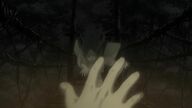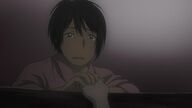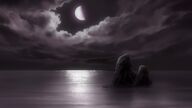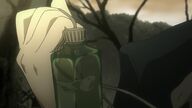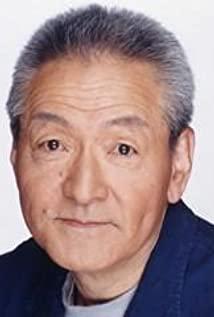Because this is a story about the mysterious "worm" world, beyond imagination but without deviating from the logic of reality, the breath of ink feng shui painting and the harmonic minor choreographed by Masuda Toshiro are moving your nerves all the time. The most important thing is The thing is that all the fragments are filled with humanity and kindness, the scourge of greed, the punishment of killing throughout, the hope of the future, the repentance of the past, the ubiquitous spirit of redemption and rational restraint, all of which make it magical Made me believe that after watching all 26 episodes over and over again, they will have more permanent value.
If you happen to be a maverick, then you might like the equally unconventional "Insect Master" protagonist Yin Guxian. If you happen to be an optimist who likes to live in groups and not to be alone, then I believe you will at least not hate him. Because Yingu will only appear when you need him and that need is caused by that kind of "bug" that is said to be very magical, and other times, he is always traveling far away from you.
Imagine such a traveler with white hair and white hair covering half of his face. He travels all the year round between mountains, forests, rivers, lakes and wilderness, but his clothes are always clean. He only carries a simple small wooden box with him, but he does not worry about eating. He's not super and muscular, but at least he's in good health. He has no bad habits, except sometimes he smokes a cigarette that repels "worms". He didn't say much, but that was arranged by the person who wrote the script. The most amazing thing is that he will never have emotional ups and downs. No matter if he encounters a terrible plague, a bizarre death, a warm party, or a touching story, Yingu is always calm and rational. For the vast majority of the time, he's wise to act as a cold-eyed bystander, neither talkative nor hands-on, intervening only when a problem involves his field of expertise - "worms." There are too many joys and sorrows in the world, entanglements in human relationships, flowers bloom and fall, and people gather and disperse. When the parties involved are trapped in the quagmire of bitterness and cannot extricate themselves and are unwilling to extricate themselves, others are naturally even more unqualified and unable to intervene. Not only Mr. Yingu, why not we? Who is not a passer-by in this hustle and bustle of life? Who can exhaust all knowledge and know all means to complete all plans and finally successfully reach the top of life? There is no savior and no fairy emperor in the world. Everyone's ability is limited. How ridiculous it is to fight bravely or fight a windmill like Don Quixote alone. When the story comes to the emotional part, Mr. Yingu will be in a corner far away from the crowd, leaning on the suitcase, looking at the world with a lonely but not desolate gesture. Soon after, he embarked on a new journey.
As a loner traveler, lonely but not desolate, not self-pity and narcissism, and even have some compassion for the world, this is what makes Yingu different from ordinary travelers. Yingu has about three or two friends, most of whom are friends who have only met a few times, such as doctors, insect masters, sculptors, hunters and craftsmen. It is worth mentioning that although these people and the protagonist do not meet often, they have established an extraordinary friendship with Yingu, a mature and indifferent friendship that I cannot describe. I yearn for that scene: after a hailstorm, the female sculptor sits on the floor in the middle of the room and burns the stove, Yingu sits lazily on the railing in front of the door drinking tea, the doctor leans against the doorpost in a slouchy dressing gown and looks at the scenery , the three of them chatted one after another, everything was so quiet and peaceful that it was impossible to see that they had just saved the lives of all the children in a village. The sky outside the house is slowly clearing up, the sun is as clear as mica, and the clouds drift between the distant mountains, leisurely, as calmly as the whole story. Scenes like this can be seen everywhere, making people feel comfortable.
When the great traveler is tired, he often sits in a daze on the bank of the river of light flowing silently, which symbolizes the origin of life. This is the moment that touched me the most. A person who is neither happy nor worried, does not hate the world nor feels lonely, just sits in a daze just like that. Among the many and varied film characters, I don't remember anyone else being so real except the bug master Yingu.
via http://tieba.baidu.com/f?kz=393983037
View more about Mushi-Shi reviews



